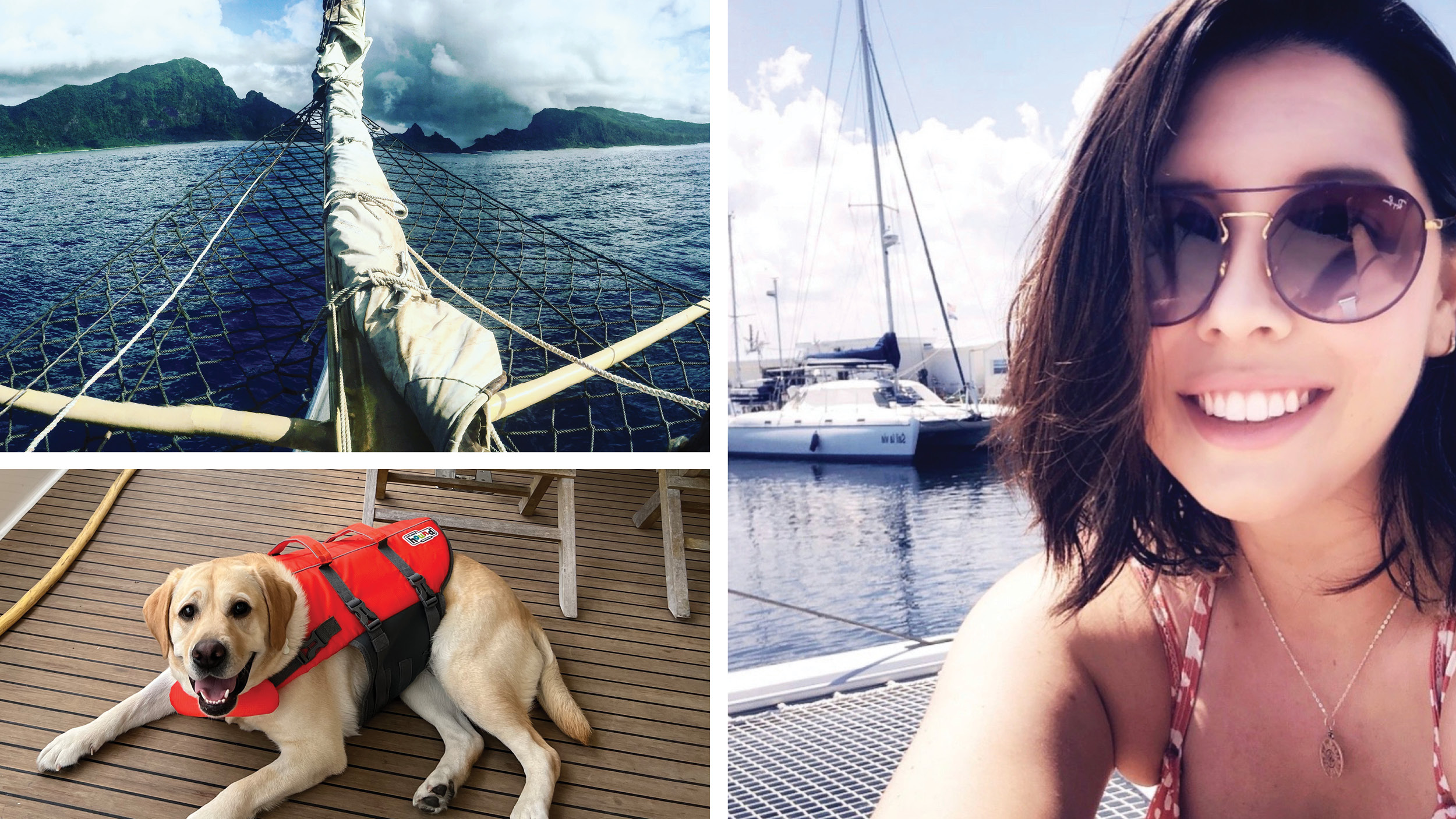Goldberg Segalla attorney Nikki Caspers grew up in a sink or swim world.
Born and raised in Hawaii, Nikki learned to sail as a young child. “All the parents would get the kids together and put us into tiny sailboats called Lasers, two to each boat. Then just send us out into the Pacific Ocean. Without a lot of instruction, really. Just, ‘Have fun!’”
From those early days until she went off to law school, sailing continued to be an important part of Nikki’s life. She crewed for her dad during Thursday night races. Annual family vacations meant going to the boat and taking weeklong sailing trips.
As a young woman sailor, Nikki was naturally interested in the incredible news coming out of the Global Solo Challenge, one of the most extreme sailing events in the world. She watched with enthusiasm what could be considered the ultimate demonstration of self-reliance: Cole Brauer’s 130 days at sea that culminated on March 7 with her second place finish in the race. The 29-year old became the first American woman to race nonstop around the world by herself, and set a new speed record in the process.
“Solo racing is one of the most incredibly dangerous things you can do,” Nikki said. “You’re on your own, with nobody to help you. You need to know every single bit of your boat, and be able to fix anything that goes wrong. And on boats, everything breaks, all the time!”
Nikki Caspers and her 4-legged crew 
Nikki went on to detail the challenges Brauer faced on her journey. Carrying out mundane tasks like eating and bathing while making sure she stayed on course. Figuring out how to sleep as safely as possible, then breaking ribs when she was violently thrown across the boat in the rough waters near Africa. Sailing in places that even shipping companies know it’s not safe to be. “But that’s where Cole was, all by herself, in a boat that’s not very big. Yeah, that’s pretty impressive.”
“The Global Solo is a lot different than a sport like basketball where you get onto the court and play a game,” she continued. “In order to do what Cole did, you have to have a certain level of confidence in yourself. You have to think that your likelihood of success outweighs the likelihood that you’re going to die doing it.”
Of Brauer’s accomplishment, Nikki points out that she has busted a number of myths used to explain why women don’t belong in sailboat racing. “Women aren’t mentally ready to do it. They don’t have that win-at-all-costs mentality. And you have to be physically strong enough,” she lists.
“Cole is someone you can point to and say, ‘Here’s a woman – who’s only 5’2” tall and weighs 100 pounds – who did all of this by herself. And she not only finished the race, she came in second!’”
To some extent, Nikki sees the fact that Cole is a woman as a unique advantage. “I think being in a male-dominated arena, where you don’t look like everyone around you and you’re getting a lot of pushback, that you feel you have to do better. You have the extra drive to be better simply because you have to.”
The lessons in self-reliance have served Nikki well. She’s thriving in a career that has traditionally been male dominated by embracing a philosophy learned from her dad. “He always told me ‘Somebody has to be the first, so it might as well be you. Somebody has to be the best. Why not you?’ So I think you just have to do it.”
According to Nikki, breaking barriers – whether in sailing or law – requires another step. “You have to do what you can to get where you want to be. But also know that you’re not the only person who wants to be there. Other women want to follow you. So, once you get there, leave the door open and help the next generation.”
Nikki sees the attitude she learned as a sailor paying off today. “I have a sense whenever I start something that things may go wrong and I’m going to have to fix it. Then if something happens, I figure it out,” she explains. “That whole ‘sink or swim’ thing? Well, I’m not going to sink.”